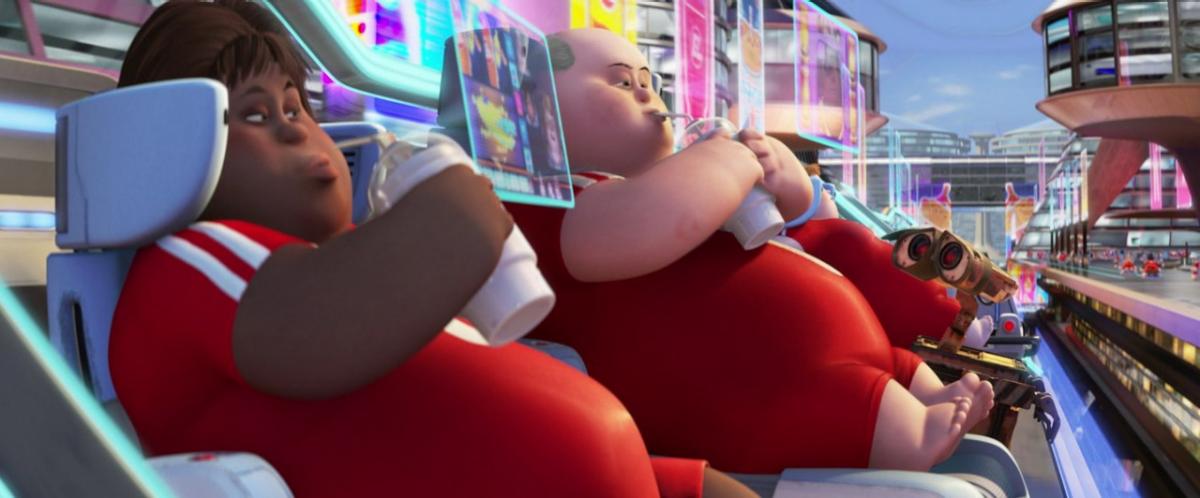We're all going to die - that's a fact.
But even Millennials should be preparing to meet their maker, if American scientist Guy McPherson is to be believed.
The retired biology and ecology professor says runaway climate change is going to kill us all by the year 2026. And if we somehow make it off the planet before then, unlike the inhabitants of the starliner Axiom in apocalyptic Pixar classic WALL-E, we might not be able come back.
"It's certainly all over for us in the not too distant future," Prof McPherson, who used to teach at the University of Arizona, told The AM Show on Monday.
In late 2016, he appeared on Three's Paul Henry to say humanity would be wiped out in 10 years. He's sticking by that timetable - even suggesting he might have overestimated how long we have left.
"For most of us, we'll be going sooner than that 2026 timeline I presented a couple of years ago."
Here's how it'll apparently go down: "Plant life will be unable to keep up with the repetitive rise in temperature. Plants will die, and we need plants to survive. We don't eat without plants. The water will continue to be fouled, the air will continue to be spoiled," explains Prof McPherson.
"But a primary factor will be starvation as civilisation collapses and the inability to grow grains at scale is one result."
Let's say the luckiest of us make it aboard the Axiom. Then what happens?

"It could be - and I'm not predicting this, but this could happen - that the world's 400-plus nuclear power plants melt down catastrophically when unattended by people because they're not paid, because civilisation collapses. That could cause ionising radiation to strip away the Earth's atmosphere and leave us in the not-too-distant future looking a lot like Mars.
"It could be that we lose the living planet. That's not what I wish for, that's not what I'm predicting, but it wouldn't surprise me. There would be no human around to document that demise."
- Where climate change will hit NZ hardest revealed in new interactive map
- How you can prepare for the effects of climate change in NZ
Prof McPherson's ideas don't appear to have much support in the wider scientific community. A quick Google search brings up numerous blogs and articles debunking his claims, saying he appears to misunderstand some facts about how the global climate works, and misrepresents others.
The last time Prof McPherson was in New Zealand, Victoria University climate expert Prof James Renwick took a closer look at his claims. While Prof McPherson appeared to be very knowledgable about his areas of expertise - ecology and biology - there were serious problems with his understanding of atmospheric physics, and he exaggerated some key figures by up to 10 times.
- Is New Zealand 'the glory land' in a future apocalypse?
- Alex Jones says Obama in NZ to escape apocalypse
"If your public profile depends on your image as an authority on 'global warming', you would do well to be clear on the science," Prof Renwick wrote, saying there was no need to be so alarmist when the reality was dire enough.
"My perception is that concerted global action within the next decade can avoid the worst consequences. The flip side is that business as usual, even for another ten years, could lock in changes that do indeed put global society at risk and threaten possibly hundreds of millions to billions of lives. Not instant death, but a very unpleasant future for a very long time.
"I find that prospect plenty scary enough, and it leaves room for us to take action. Let's take it."
A conspiracy?
Prof McPherson says other scientists agree with him - they're just too scared to say so.

"There are several scientists who do not disagree with the information I present. Does that mean they agree with me in public? Of course not, because they would lose support for these prestigious academic positions if they agreed with me in public.
"They don't ever disagree with me, but they don't publicly agree with me either."
- Kiwis' attempt to crowdfund a forest hits a million trees
- Environmentalists write open letter to Jacinda Ardern
In the meantime, he says he'll be "living as largely as I can" in his home in Belize, "surrounding myself with people I love and doing the work I love, which includes education".
If people ignore his message, he doesn't really care - remember, we're all going to die soon whatever we do.
"I'm presenting evidence - if people don't want to believe it and they want to call me names as a result, I don't have any control over that. I'm a rationalist. I've been pursuing scientific activity for a very long time, my entire adult life. If you don't want to believe me, that's really not on me."
Newshub.
